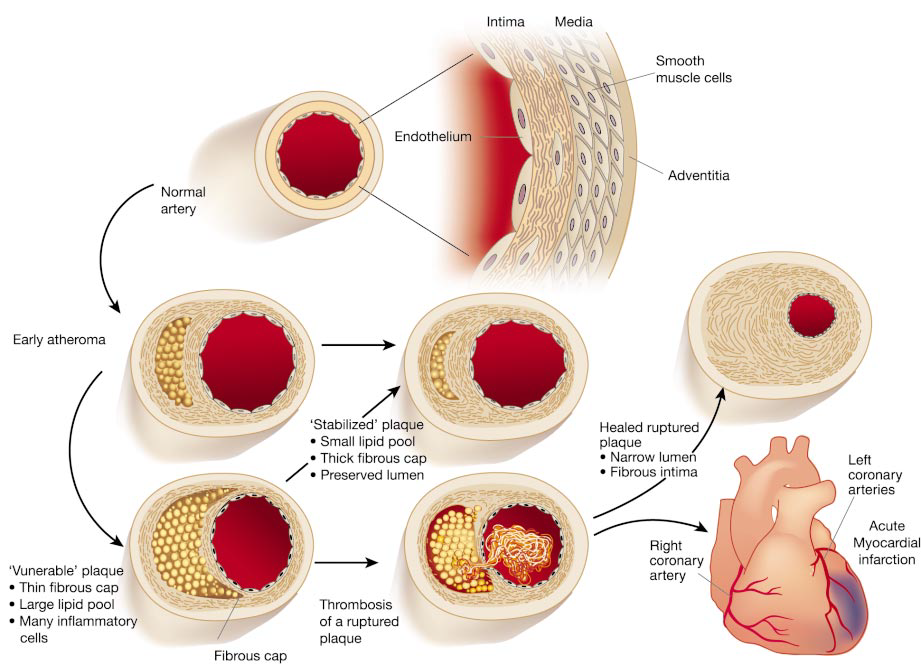 [1]
[1]
Every year, more than 1 million people in the United States and more than 19 million others worldwide experience a sudden cardiac event (acute coronary syndromes and/or sudden cardiac death). A large portion of this population has no prior symptom.[2]
Preparticipation health screening by self-reported medical history or health risk appraisal should be done for all individuals wishing to initiate a physical activity program. These self-guided methods can be easily accomplished by using such instruments as… an adaptation of the AHA/ACSM Health/Fitness Facility Preparticipation Screening Questionnaire:
Assess your health status by marking all true statements
History
You have had:
__ a heart attack
__ heart surgery
__ cardiac catheterization
__ coronary angioplasty (PTCA)
__ pacemaker/implantable cardiac defibrillator/rhythm disturbance
__ heart valve disease
__ heart failure
__ heart transplantation
__ congenital heart disease
Symptoms
__ You experience chest discomfort with exertion
__ You experience unreasonable breathlessness
__ You experience dizziness, fainting, or blackouts
__ You experience ankle swelling
__ You experience unpleasant awareness of a forceful or rapid heart rate
__ You take heart medications
Other health issues
__ You have diabetes
__ You have asthma or other lung disease
__ You have burning or cramping sensation in your lower legs when walking short distance
__ You have musculoskeletal problems that limit your physical activity
__ You have concerns about the safety of exercise
__ You take prescription medications
__ You are pregnant
If you marked any of the statements in the section, consult your physician or other appropriate health care provider before engaging in exercise. You may need to use a facility with a medically qualified staff.
Cardiovascular risk factors
__ You are a man ≥45 yr
__ You are a woman ≥55 yr
__ You smoke or quit smoking within the previous 6 mo
__ Your blood pressure is ≥140/90 mm Hg
__ You do not know your blood pressure
__ You take blood pressure medication
__ Your blood cholesterol level is ≥200 mg ∙ dL-1
__ You do not know your cholesterol level
__ You have a close blood relative who had a heart attack or heart surgery before age 55 (father or brother) or age 65 (mother or sister)
__ You are physically inactive (i.e., you get <30 min of physical activity on at least 3 d per week)
__ You have a body mass index ≥30 kg ∙ m-2
__ You have prediabetes
__ You do not know if you have prediabetes
If you marked two or more of the statements in this section you should consult your physician or other appropriate health care as part of good medical care and progress gradually with your exercise program. You might benefit from using a facility with a professionally qualified exercise staff a to guide your exercise program.
__ None of the above
You should be able to exercise safely without consulting your physician or other appropriate health care provider in a self-guide program or almost any facility that meets your exercise program needs.[3]
- Libby, Peter, Paul M. Ridker, and Attilio Maseri. “Inflammation and atherosclerosis.” Circulation 105.9 (2002): 1135-1143.
- Naghavi, Morteza, and Erling Falk. “From vulnerable plaque to vulnerable patient.” Asymptomatic Atherosclerosis. Humana Press, 2011. pp. 13-38.
- American College of Sports Medicine. ACSM’s guidelines for exercise testing and prescription. 9th ed., Lippincott Williams & Wilkins, 2014. pp. 23, 25.